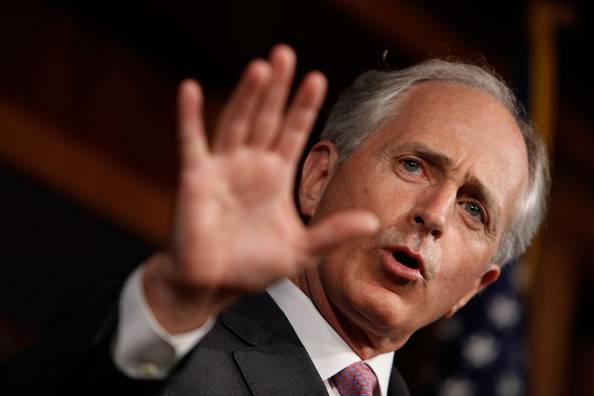A congressional hearing that was supposed to feature discussion of the Obama Administration’s annual budget turned into a debate over whether Pakistan is fighting or providing safe havens to terrorists. This extreme polarisation of opinion over Pakistan’s role in the war on terror reflects the global perspective; where some countries still think of Pakistan as a hostile country, using non-state actors to control Afghanistan. The link between Afghani militants and intelligence agencies is undeniable, however this connection is no longer what it once used to be; an official mandate to keep this nexus alive with a flawed idea of protecting national security as a consequence. The military looks to have finally realised the disastrous consequences of allowing extremism to fester in the country, at least in the tribal areas.
The majority of opposition came from Senator Bob Corker, a Republican Senator, while Pakistan’s resolve was defended by John Kerry, with the administration looking to extend an additional $742 million of defence aid to Pakistan. The government should not be too worried about Senator Bob Corker comments until the next presidential elections in November. The current staff of White House seems convinced with Pakistan’s efforts to curb terrorism in both Pakistan and Afghanistan. However, given the current climate of American politics, this round of elections promises to be one of the most unpredictable in American history. A republican president will not reciprocate the friendly overtures of the Pakistani government. Pakistan needs to be prepared for the possibility of an end to the support extended from the US government in matters of defence.
Pakistan’s seemingly unnoticed fight against terrorism would benefit if the armed forces opened the areas of conflict to the media and other independent observers to assess the success of this operation. With Zarb-e-Azb now in its final stage, the information coming out of North Waziristan should no longer be second-hand. Arbitrary official statistics of militants killed is clearly not having an effect on the rest of the world. The burden is now on the military to prove that the operation was actually as effective as claimed. Those that do not believe in Pakistan’s resolve cannot argue with the facts; if the Haqqani network and other prominent groups are no longer present in Pakistan, then the overused argument of Pakistan’s tacit support for militancy holds no weight. If North Waziristan can be independently verified as free from terrorism, the international community can rest knowing that Pakistan has finally undertaken a very necessary task for global interest. It is time we all find out whether this humdrum has been worth all the trouble, and whether the ideological shift in the military is for real.
Wednesday, April 17, 2024
Split Down The Middle

Pakistan No 1 amateur Saad Habib off to Japan to feature in Royal Junior Championship 2024
11:43 PM | April 16, 2024
We are ready to deliver against West Indies, says Sidra Amin
11:29 PM | April 16, 2024
Political Reconciliation
April 16, 2024
Pricing Pressures
April 16, 2024
Western Hypocrisy
April 16, 2024
Policing Reforms
April 15, 2024
Storm Safety
April 15, 2024
Democratic harmony
April 16, 2024
Digital dilemma
April 16, 2024
Classroom crisis
April 16, 2024
Bridging gaps
April 16, 2024
Suicide awareness
April 15, 2024
ePaper - Nawaiwaqt
Advertisement
Nawaiwaqt Group | Copyright © 2024





